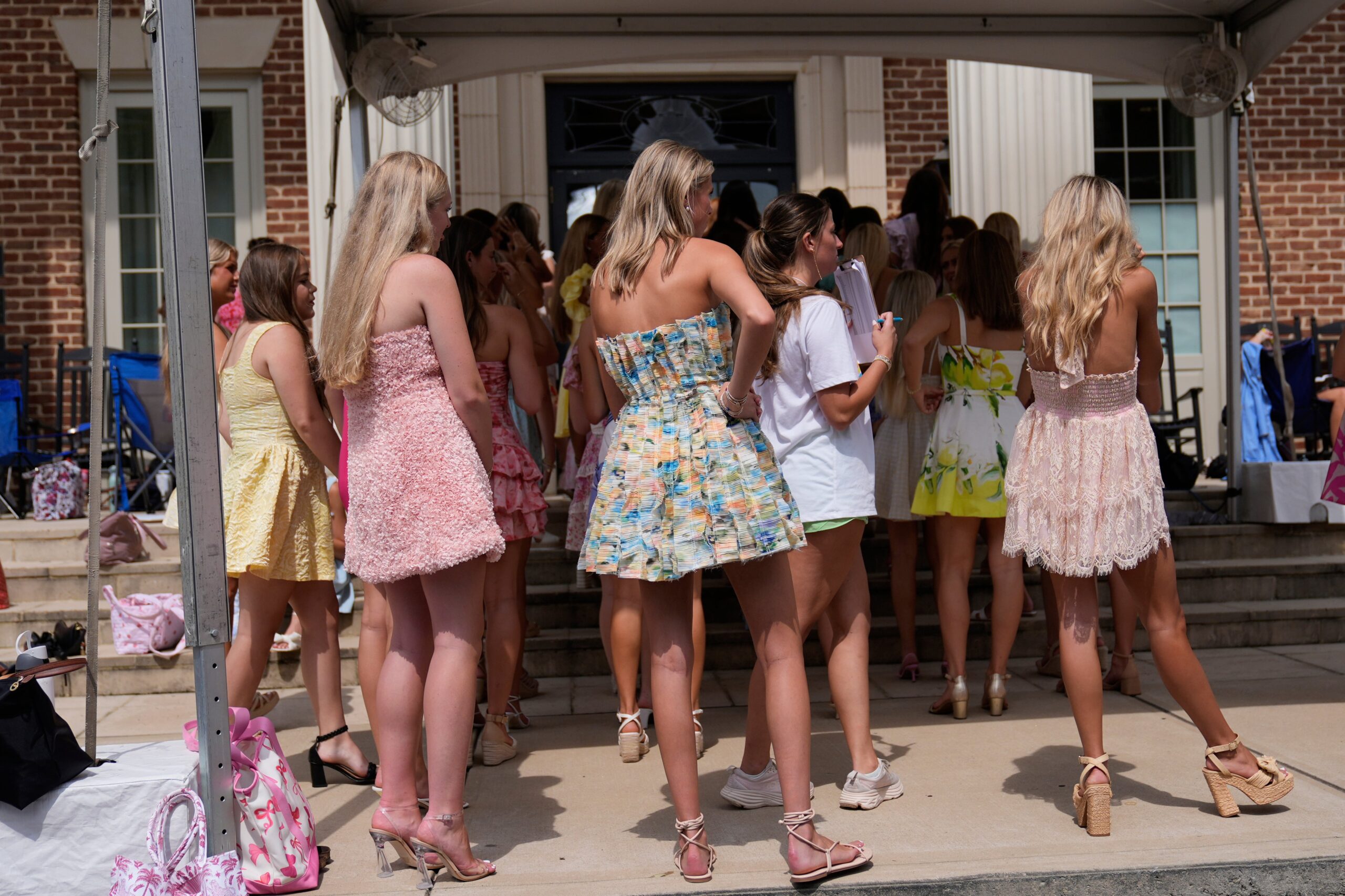In the TikTok niche that chronicles the glamorous, ceremonial sorority recruitment process, Kylan Darnell rose to fame overnight. She is putting more of her sorority life offline as a 21-year-old rising senior four years later.
Up until now, Darnell has been the face of RushTok, a week-long marathon in which teenagers at campuses around the nation painstakingly record their attempts to secure a desired seat in a sorority during the vibrant, frilly, and mysterious recruitment process known as rush week.
She claimed that the harsh reactions to the material that initially made her famous—which showed her life as a member of Zeta Tau Alpha at the University of Alabama—had gotten so bad that it was having an impact on her mental health.
According to Darnell, the intensity of animosity this year was completely different.
Many sororities have taken similar actions, citing the need to protect potential members from abuse. At Alabama, where almost 13,000 students engage in the largest on-campus Greek life in the country, there is a de facto prohibition on speaking to the media or posting on social media during rush week.
A centuries-old tradition
Rush is usually a 10-day event held across the nation where prospective new members try out sororities through a series of activities that prescribe a rigid set of dress codes and manners. Girls frequently submit social resumes and recommendation letters from former members of sororities in the lead-up.
The cost of participation is frequently eye-opening.
Each of the 2,600 recruits this week paid $550 to participate, after often shelling out tens of thousands of dollars for airport tickets, makeup, and clothing. If they are not selected, there is no return. According to the Alabama Panhellenic Association, if accepted, they will pay an average of $8,400 every semester to reside in the sorority house, or $4,100 if they live elsewhere.
A whole industry of advisers now assists females in navigating the sometimes enigmatic requirements for getting into a desired sorority because the pressure may be so great. For months of services that might start in high school, some charge up to $10,000.
Many events are invite-only during rush hour. Girls may receive the dreaded call at any time telling them that they have been dropped from a sorority because they are no longer interested in joining. On bid day, when sororities make offers and prospects rank their preferred picks, matches are eventually formed.
Despite getting kicked off RushTok, 20-year-old Morgan Cadenhead amassed enough followers to pay for the majority of her tuition with money from social media. The social cost followed when she received backlash online for disparaging Greek culture. The marketing major was recently highlighted on Lifetime sSorority. According to Mom’s Guide to Rush!, she is seeking offline employment.
A zealous TikTok following
After the pandemic, sororities began in-person recruitment, reigniting a fascination with rush.
Videos featuring sorority members and recruits in well-lit rooms, occasionally showcasing expensive designer clothing or items bought on Amazon, all expertly curated, inundated social media with outfit of the day and get ready with me posts.
When Alabama’s historically white sororities became racially integrated and welcomed their first Black members in 2013, the state’s Greek life gained notoriety.In 2016, the university reached an agreement with the Justice Department to promote diversity after becoming the target of demonstrations after claims of racial discrimination. According to the university website, 2% of all Greek membership now consists of Black students who do not belong to traditionally Black sororities and fraternities.
According to Lorie Stefaneli, a consultant from New York City who travels to Tuscaloosa every year for rush, the popularity of sororities in the South in particular has increased as a result of online attention to the phenomenon, which has resulted in books, a divisive documentary, and the reality television series.
Approximately one-third of Stefaneli’s customers enroll at Alabama, and she instructs girls from all over the nation. According to her, a lot of people are drawn to the colorful representations of sisterhood, which highlight female bonds that can help females feel heard and encouraged.
“They see it on TikTok, which is why many of them want to visit Alabama,” Stefaneli added.
Recruits told to stop posting or else
Participants in RushTok can earn brand partnerships and ad revenue if they acquire enough followers to become social influencers. She became financially independent because to Darnell’s posts, which more than covered the $58,000 she spends each year to attend Alabama from out of state.
Rush is an emotional rollercoaster, particularly for girls who feel compelled to show themselves to a large audience, but it can also be enjoyable and help them gain confidence, Stefaneli added. During rush week, she takes calls at all hours of the night.
She remarked, “I’m talking these girls down from a ledge; I’m literally a therapist.”
During rush at Alabama, many new freshmen told The Associated Press this week that they were specifically forbidden from talking to the media or even writing about it. According to Darnell, the most picky Old Row residences will immediately reject applicants who do.
She claimed that many girls now attend universities only to be influencers. In a way, it interferes with sisterhood.
Several new freshmen, such as Izzy, Darnell’s 19-year-old sister, who has a sizable social media following of her own, have decided to post nevertheless, meeting a demand that can get millions of views in a matter of days.
Ahead of Saturday’s bid day, Izzy Darnell, who declined to reveal her sorority options, claimed that her older sister’s savvy had prepared her to handle criticism and potentially unscrupulous business dealings. However, she is concerned about how other girls could respond to the money and fame.
Izzy Darnell remarked, “I just worry about what some girls will do because they feel compelled to.”






